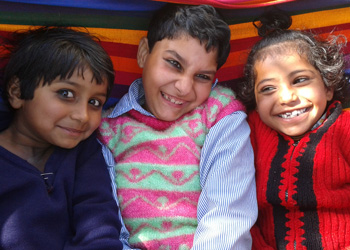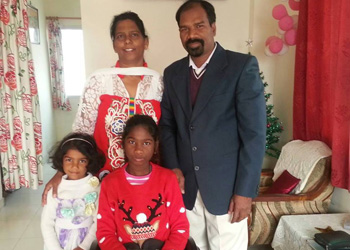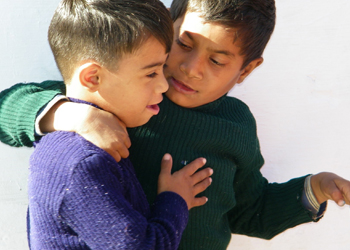Anugrah Project

Every parent of a disabled child knows that many aspects of life will be more challenging for them, whether the disability is physical or mental. In the US, we have a plethora of treatment options, both through the public school system and through private programs. In India, if you have a disabled child, not only are there few treatment options, but parents also suffer from severe prejudice against their child. The belief system in India focuses heavily on the concept of karma, so those with disabled children are thought to have done something wrong in their previous lives that caused their child to be punished with this affliction. Disability is looked upon as a curse and a cause for shame, and the level of shame is based on the severity of the disability. Those with disabilities are often hidden at home so the shame is not exposed. People believe that it is a bad omen to spend time around a disabled person. On a spiritual plane, parents are told to pray to their gods for their child’s healing, and when it does not come about, they are told they don’t have enough faith. Sometimes the child’s disability is even blamed on the sin of the parent. They even go so far as to say the disabled child is afflicted with an evil spirit and then try to use black magic to evict it.
In order to address these issues, Dr. Jubin Varghese at Herbertpur Christian Hospital began Anugrah, a Community Health and Development Program focused on disabled individuals. Anugrah began by focusing on children and then grew to include disabled adults. Their learning center operates in the village two or three days a week, providing therapy, life skills development, and support. They have a five-pronged approach: health, education, livelihood, social needs, and involvement. The health component focuses on physical and occupational therapy as well as orthotics and other needed equipment. If a child can be mainstreamed, they work with the government schools to help provide disabled children a solid education by making sure they have the basic skills for learning. For older disabled people, they try to help them find a livelihood by introducing them to groups who have income-generating projects. For their social needs, they connect them with the governing body in the village so that they can communicate their needs and be recognized as village members. Another important aspect is helping people with different disabilities be involved in one another’s lives. Dr. Varghese has also assisted in the development of disability programs at five other EHA hospitals: Landour Community, Duncan, Baptist Christian, Chattarpur Christian, Nav Jivan, and Kacchwa Christian Hospital.
Dr. Varghese has learned the hard way that her team must not focus simply on advocacy and the rights of the disabled, looking at people as projects to be fixed. Rather, they must be more focused on relationships, because relationships are what will change the culture. Disabled people need to make friends with non-disabled people, and they often need help for this to happen because of the prejudice against them. Even the church tends to believe what the culture tells them. Dr. Varghese has worked with churches to help them understand that they are central to reaching out to the disabled. They need to help others understand that disability is not a curse or a result of sin, but simply a condition a person struggles with. If the church reaches out to the disabled in love, they will have a window to share God’s love with this rejected group.
God Works Through Disability

Pastor Inderamani and his family came to Herbertpur Christian Hospital for a week to participate in the counseling and support offered through the Anugrah Disability Project. His daughter, Grace, has cerebral palsy and is confined to a wheelchair, and he was struggling to see what God’s purpose was in her infirmity. By the end of his stay, Pastor Inderamani was determined to respond to his situation by reaching out into the community to help others. He went back to his church and spoke to the members, and they decided to hold a disability meeting once a week to which parents of children with disabilities would be invited. At these meetings, people began to learn more about disabilities as the families spent time together and shared their life stories.
Pastor Inderamani was thankful for the support this new ministry was providing to these families, but he was still struggling to see how God would be glorified in the difficulties his daughter faced. But then something exciting happened. Grace spent part of each day outside on the patio in her wheelchair. While she couldn’t speak, Grace would wave and smile at those going by. One lady saw her wave every evening and eventually stopped to ask the pastor what was wrong with his daughter. Their conversation led to the sharing of the gospel, and now this woman attends the pastor’s church and is a believer. So even though his daughter could not speak, God used Grace to bring this woman and her family to belief. Pastor Inderamani could now see a redemptive purpose to Grace’s condition, and he began to feel that it was not such a burden. His faith has been stretched to believe that God is good even in the very difficult circumstances of life.

About the Anugrah Project
When Robert Kumar’s son was born in 1999, the doctors quickly diagnosed the baby with cerebral palsy, which left his son paraplegic. The Kumars were stunned to learn there was no help to be found for disabled children, not in Herbertpur nor anywhere nearby. The Kumars decided to begin a special program named the Anugrah Project, dedicated to the needs of disabled children and their parents.
Anugrah is a Hindi word that means grace or kindness. The Anugrah Project helps children with all sorts of disabilities both physical and mental, from cerebral palsy to Down syndrome to deafness. The program aims to improve the quality of life for families living with disabilities. The Anugrah Project staff includes a physiotherapist, occupational therapists, a psychologist, and more. The Anugrah Project team helps families to cope with both the physical needs as well as the sense of shame that often accompanies disability in the community. The program now serves both children and adults of all ages.
